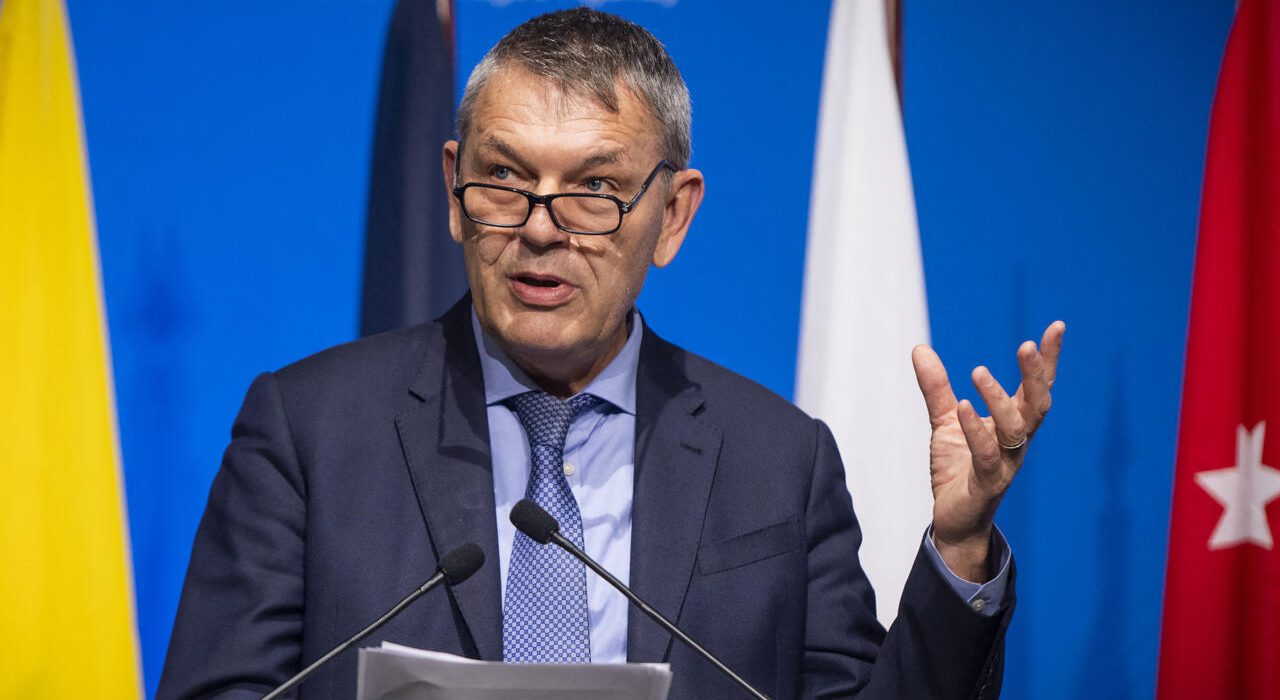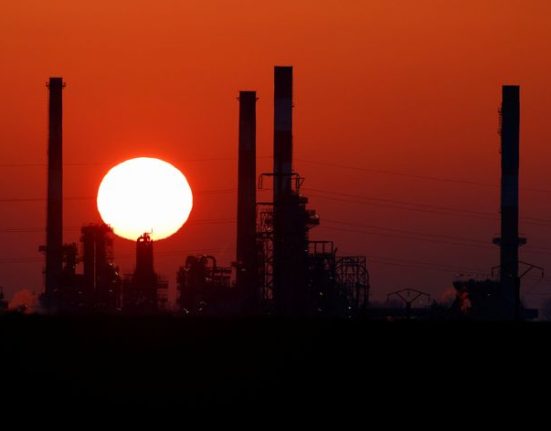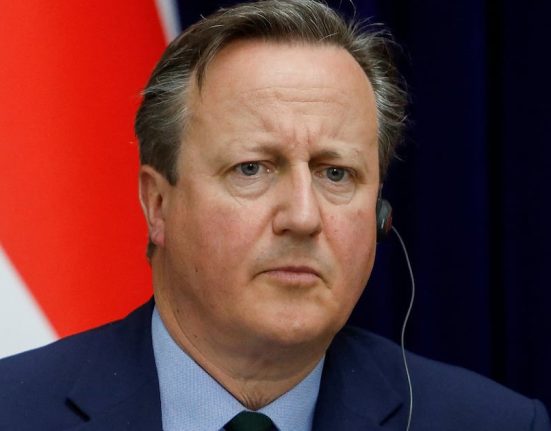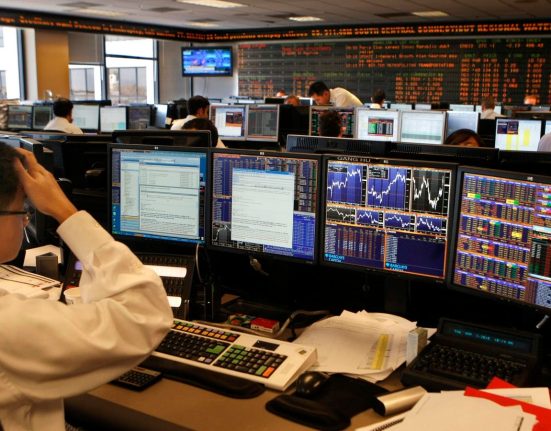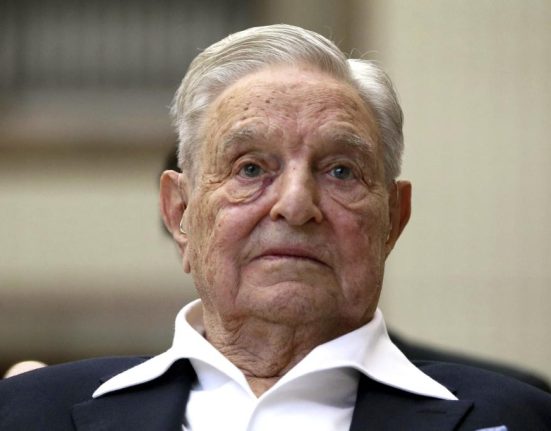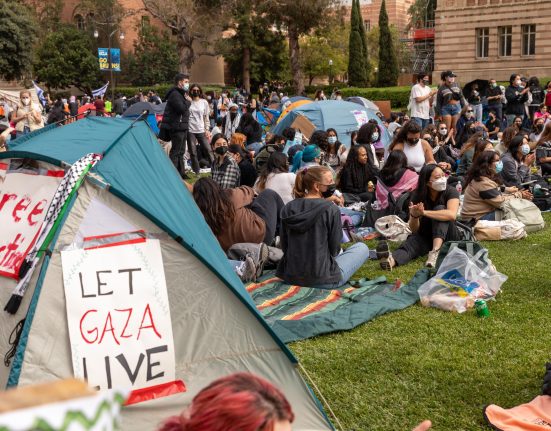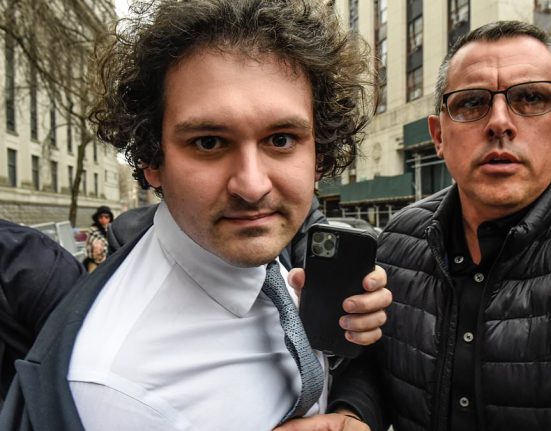From our UN correspondent in New York – The UN agency for Palestinian refugees (UNRWA) announced on January 26 that it had terminated the contracts of several employees pending an investigation into Israeli allegations that they had been involved in Hamas’s October 7 attacks in Israel. The move prompted several nations to suspend vital funding to UNRWA while the inquiry proceeds, deepening Gaza’s already acute humanitarian crisis. But Israel refuses to share either its evidence or the intelligence dossier – a summary of which was seen by FRANCE 24 – with UNRWA, posing a challenge for the UN agency to complete its inquiry.
A senior Israeli diplomat surprised UNRWA chief Philippe Lazzarini during a routine in-person meeting in Tel Aviv on January 18, informing him that Israel had evidence UNRWA staff members were involved in the October 7 massacre in southern Israel that left more than 1,100 dead.
“We were shocked, we took this seriously because these were very serious allegations,” UNRWA spokesperson Juliette Touma told FRANCE 24.
Lazzarini travelled to New York four days later to brief UN Secretary General Antonio Guterres and then to the US State Department in Washington to warn UNRWA’s top donor, the United States, Touma said.
Lazzarini also “had a series of phone call interactions with several of our largest donors before the UN went public in the morning of January 26” with the decision to let some staff members go.
“We took the decision to put out the information first and not to respond to leaks,” Touma said.
She added that the Israeli information was given to Lazzarini verbally but that no evidence was shared.
UNRWA acted quickly and “cross-checked the information and the names they were given,” UN spokesperson Stephane Dujarric told a press briefing last week.
The UN ended the contracts of the accused staff members and said it was launching an investigation into the Israeli claims. Touma said this unprecedented step was taken because the allegations “put the reputation of the agency and humanitarian operation in Gaza at serious risk”.
But despite the UN’s announcement of an immediate investigation, key UNRWA donors suspended funding to the agency pending its findings, as millions of Gazans go desperately hungry, are at risk of disease, and are forced to sleep in crude shelters or even on the streets amid continuing Israeli bombardment.
The accusations against a handful of staff in an agency of 13,000 employees operating in Gaza alone have already had a devastating effect on civilians. UNRWA provides essential government services in Gaza, including running 278 schools for 280,000 children and 22 primary healthcare centres, while also providing food to the approximately 2 million people who have been under siege by Israel since early October.
The ‘suspenders’
At least 16 donor countries, including the top two contributors – the US and Germany – have frozen funding to UNRWA over the allegations and have been dubbed the “suspenders” in the corridors of UN headquarters in New York.
About $440 million in funding is at risk, Touma said, adding that UNRWA will run out of money by the end of February if donors continue to withhold money.
The United States and other donor nations as well as the European Union have made it clear they will not resume funding until they are satisfied with the UN’s investigation. State Department spokesperson Matthew Miller said in a statement that there must be “complete accountability for anyone who participated in the heinous attacks”.
Guterres has urged donor nations to resume funding to UNRWA immediately, reminding them of the “swift” action the UN is taking to address the accusations. He also asked Lazzarini to task an outside organisation with conducting a separate, independent assessment of the agency’s operations in addition to the internal UN review.
The UN announced on Monday that it had appointed Catherine Colonna, France’s former minister of foreign affairs, to lead the Independent Review Group to “assess whether the Agency is doing everything within its power to ensure neutrality and to respond to allegations of serious breaches when they are made”. The group will begin work on February 14 and will submit an interim report to the secretary general in late March with a final report – which will be made public – expected by late April 2024.
France, UNRWA’s fourth-biggest donor, has not suspended its voluntary contributions to the agency. France increased its funding in 2023 to €60 million, out of concern over the “disastrous humanitarian situation in Gaza” and its impact on civilians. France’s foreign ministry issued a statement saying it will be “waiting for the investigations launched in recent days” to decide how to proceed regarding its contributions for 2024.
‘The dodgy dossier’
Israel has not yet shared its full intelligence dossier with either UNRWA or the UN Office of Internal Oversight Services (OIOS), the UN legal body tasked with carrying out the internal investigation.
“I don’t think we need to give intelligence information,” said Lior Haiat, a spokesperson for Israel’s foreign ministry. “This would reveal sources in the operation. We gave information to UNRWA about employees that worked for UNRWA that are members of Hamas.”
US Secretary of State Antony Blinken stated, “We haven’t had the ability to investigate [the allegations] ourselves. But they are highly, highly credible.”
Haiat noted that the very nature of the allegations makes it impossible for Israel to share all the evidence it has with UNRWA.
“They think that we can give them intelligence information, knowing that some of their employees work for Hamas? Are you serious? Why don’t we invite Hamas to our headquarters and have them sit at our desk and have a look at all the information we have?” he asked.
A six-page summary of the Israeli dossier leaked to a handful of media outlets and seen by FRANCE 24 provides the names of the 12 UNRWA staff members accused of participating in the Hamas attacks, ranging from kidnapping Israelis to helping to carry out the massacre at the Be’eri kibbutz. Two of the accused are dead and another is unaccounted for.
The dossier alleges that the first man on the list of the accused, an UNRWA school counselor, entered Israeli territory to kidnap an Israeli woman with the help of his son.
The accusations say they are drawn, in part, from “intelligence information, documents and identity cards seized during the course of the fighting”. The dossier estimates that there are around 190 Hamas or Palestine Islamic Jihad terrorist operatives working for UNRWA.
The Israeli foreign ministry told FRANCE 24 that evidence of UNRWA staff involvement includes phone tracking that shows where the employees were on October 7 as well as video footage gathered by the Israeli Defence Forces.
Yet this documentation has not been provided to UN investigators.
“They received some type of evidence to terminate the employees, obviously they would not have done that if they did not receive some type of evidence,” said Joshua Lavine, the spokesperson for the Israeli mission to the UN.
Lavine said that he was “not surprised that there are members of UNRWA who are also members of terror organisations” and that there have been meetings in the past between the Israeli mission and UN officials discussing the issue.
Israeli Ambassador Gilad Erdan escorted a delegation of nine UN ambassadors to Israel on January 31 where they met with the president, the foreign and defence ministers, and Prime Minister Binyamin Netanyahu. UNRWA was discussed at length.
In a February 1 briefing, Defence Minister Yoav Gallant told the ambassadors that UNRWA had “lost its legitimacy to exist”. Malta’s UN Ambassador Vanessa Frazier, who took part in the delegation, told FRANCE 24 that Gallant told them that UNRWA is “an internationally funded organisation paid to kill Israelis”.
The ambassadors had a clear message for Israel, Frazier said: “Support the SG’s (UN secretary general’s) investigation; anyone involved must be accountable, but the collective punishment only hurts the Gazans more.”
Inquiry will take time
Donors are demanding a speedy inquiry before resuming funding, but UN sources say this could take up to a year.
Former senior OIOS investigator Vladimir Dzuro, who led a major probe into top management UNRWA, said the OIOS aims to complete investigations within six months but that a realistic timeframe is more like six to 12 months, depending on the complexity of the allegations.
“I do not believe that any professional investigation into allegations of this nature, in a quality that is required under the circumstances, could be conducted in four weeks,” Dzuro said, before UNRWA’s funding runs out.
It is also unlikely that UN investigators could conduct a thorough inquiry in an active war zone, he noted.
The OIOS director of investigations, Suzette Schultz, was tight-lipped about the investigation, saying in an email only that her team is “pursuing various avenues of enquiry” and that it has “approached multiple member states that may have information relevant to the investigation”.
Donor nation Norway has refused to cut aid to UNRWA. The country’s Minister of Foreign Affairs Espen Barth Eide urged other donors not to turn their backs on UNRWA, saying: “We should not collectively punish millions of people. We must distinguish between what individuals may have done and what UNRWA stands for.”
Chris Gunness, former chief spokesperson for UNRWA from 2007 to 2020, accused the donors who have frozen funding of “illegally weaponising” UNRWA, thus violating the International Court of Justice ruling calling on Israel to prevent genocide in Gaza and the Genocide Convention itself.
“If these donors have made a decision without cast-iron evidence, they need to be investigated for a move which humanitarian experts say will cause mass starvation,” he said. “It’s time for serious pushback against the dodgy dossier, bad donorship and the betrayal of the UN, UNRWA, its staff and the people of Gaza.”
Gunness noted that the dossier illustrates “perfectly why the donors must ring-fence humanitarian decision-making from politics”.
The Lemkin Institute for Genocide Prevention, an organisation named after Raphael Lemkin, the Polish lawyer of Jewish descent who coined the term “genocide” in 1944, also sounded the alarm on the withdrawal of funds. “This is a serious escalation of the crisis in Gaza and follows the International Court of Justice’s (ICJ) first ruling in Application of the Convention on the Prevention and Punishment of the Crime of Genocide in the Gaza Strip (South Africa v. Israel), which many hoped would slow the genocide.”
“It is possible that at least some of the allegations are true. This is why UNRWA’s leadership has reacted swiftly, and an investigation has been launched,” said Matthias Schmale, UNRWA director in Gaza from 2017 to 2021.
“It can also be legitimately asked why these allegations surfaced around the time of the ICJ judgment that, amongst other things, articulated the need for immediate and massive delivery of humanitarian aid, which cannot be done without UNRWA,” he said.
UNRWA in Israel’s crosshairs
Even before October 7, there was a long history of Israel questioning UNRWA’s credibility. And yet Israel relies solely on the UN agency to provide essential services to civilians in Gaza that it might otherwise have to provide itself.
The agency is almost as old as the Israeli-Palestinian conflict itself. Created by the UN General Assembly in 1949, UNRWA was set up to provide critical social support for Palestinian refugees throughout the Mideast. Its mandate was renewed for another three years by the UN General Assembly in 2023.
Schmale, the former UNRWA director in Gaza, said that despite Hamas’s control of the Gaza Strip since 2007, the group has no involvement in the UN administration in the enclave.
“During my almost four years in Gaza I had to fire only one staff member for direct involvement, as we discovered that he was an active member of the Al-Qassam Brigade,” he said. “This was the exception, not the norm.”
“Hamas de facto authorities are NOT involved in UNRWA’s core services which include education and health,” Schmale said in an email. Hamas leaders “unsurprisingly from time to time make their views known on what UNRWA does and how, and express expectations of what should be conducted differently”.
But Schmale said that, during his time in Gaza, “Hamas mostly respected that it cannot interfere in the running of the Agency, and we were able to conduct our work in conformity with UN standards and norms.”
UNRWA has 30,000 staff, mostly Palestinians, who provide essential services for millions of Palestinian refugees throughout the Middle East. In Gaza alone, the agency has played a crucial role, especially since Israel imposed a blockade on the strip when Hamas took over governance in 2007. UNRWA is also the second-biggest employer in Gaza; 80 percent of the population of the 360-square-kilometre enclave relies on humanitarian aid.
Nevertheless, the UN agency has aroused Israeli suspicions.
A copy of a classified report written by Israel’s foreign ministry with a plan to dismantle UNRWA in Gaza in three stages was leaked to Israeli media last month. The first stage involved revealing cooperation between UNRWA and the Hamas movement.
Haiat confirmed the existence of the foreign ministry report but said that it was a “non-paper” that had not been “approved by anyone”.
An earlier Israeli government plan made public in 2017 outlined a process for dissolving UNRWA and transferring its responsibilities to the UN High Commissioner for Refugees.
When a Palestinian journalist and writer, Yasser Al Banna, who works in Gaza, read the allegations against UNRWA staff, he immediately recalled the leaked foreign ministry report and the 2017 Israeli government plan.
The accusations against UNRWA staff should be “taken in context,” Al Banna said, noting that the accused account for just 0.09 percent of UNRWA employees in Gaza.
“Logically speaking, it is not strange that 12 people out of 13,000 employees [in Gaza] could get involved in illegal activities,” Al Banna said. “Those involved should be punished legally and professionally. We should not punish an entire agency, an entire people.”
Under pressure
Lazzarini is now travelling to Gulf states to seek alternate funding for the agency. Despite facing intense pressure from Israel to resign, his spokesperson said he has no intention of doing so.
“This is a very serious crisis for the United Nations,” Touma acknowledged. “It’s probably one of the largest we’ve had to go through, involving the oldest and one of the most critical agencies of the UN. It’s important that the truth comes out.”
Touma became emotional as she recalled her visits to UNRWA schools. “I have seen how they can be a sanctuary for children in a place like Gaza that is riddled with poverty, unemployment, despair, a blockade,” she said.
She described meeting with young teenagers at a “children’s parliament”, an initiative run by UNRWA. It was a place “where refugee children can come together and learn about human rights, critical thinking and how to debunk” falsehoods.
“I ended up cancelling all my other engagements because I enjoyed speaking to these 12-, 13-, 14-year-olds so much,” Touma said. “They told me about their dreams, their hopes, what they want to be. They spoke about their love for Gaza, their dreams to travel, to be like any teenager … and that’s UNRWA.”
This article was produced in collaboration with PassBlue, an independent media organisation. Damilola Banjo, a staff reporter for PassBlue, contributed reporting.

